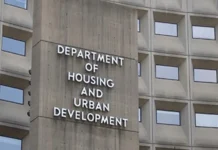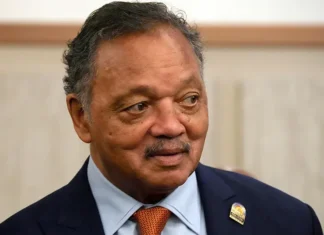
Among the many cuts and changes made by the Trump Administration since taking office earlier this year has been a significant overhaul of the Federal Emergency Management Agency. Broadly speaking, rather than having FEMA run disaster response, the Trump Administration wants states to handle things themselves when there’s a crisis.
Disaster declarations, which trigger federal support, are taking longer or aren’t coming at all, and programs like FEMA’s door-to-door canvassing, which helps get resources to the most vulnerable in the wake of a disaster, including Black and brown people, are getting cut entirely. And the administration is now aiming to slash FEMA’s budget for disaster relief, too.
MacKenzie Scott’s $60 Million Intervention
Amid this gradual undoing of the agency, philanthropist MacKenzie Scott is putting some of her extensive fortune into funding an alternative: she donated $60 million from the fortune she won in her divorce from Jeff Bezos to the Center for Disaster Philanthropy, a Washington, D.C.-based nonprofit devoted to funding equitable recovery efforts in the wake of disasters.
As a national organization, the Center for Disaster Philanthropy’s major means of helping communities grappling with flooding, hurricanes, or other extreme weather events is through giving cash directly to local organizations that, through their regional know-how and networks, are so often in the best position to help and help effectively. In addition to making grants to such organizations in the wake of disasters, the Center also consults with other philanthropic groups about their own giving efforts.
No One Left Behind
“We believe in equitable recovery, and that means leaving no one behind,” Patricia McIlreavy, who runs the Center, told the New York Times. “That could be a white farmer in Iowa who has lost a tractor in a derecho storm, or it could be a Black homeowner in Rolling Fork, Mississippi, whose house was knocked out by a tornado.”
Achieving equity, however, is more of a challenge in some communities than in others. Not only are Black communities often located in areas that have a greater risk of flooding during a hurricane or major storm, but FEMA also has a long-standing track record of getting less support to such communities than it does to areas with predominantly white populations.
When Recovery Deepens Inequality
While relief is most necessary in the immediate wake of a disaster, the effects inequitable relief can be seen in worsening income inequality, according to a 2022 report from the Center for American Progress: “In counties struck by large disasters, Black survivors see their wealth decrease by $27,000 on average while white survivors see their wealth increase by $126,000 on average.”
That report came out during the Biden Administration, when there was a focus on increasing equity across the federal government. Now, under the Trump Administration, not only are certain FEMA programs, such as door-to-door canvassing, being cut, but the agency’s overall budget for disaster relief may also be slashed. President Trump has requested just $26.5 billion from Congress for FEMA aid, which is far less than the $50 billion that the agency spends annually on average responding to disasters.
A Drop in the Bucket — But Still a Start
The $60 million that Scott is giving to the Center for Disaster Philanthropy is only a drop compared to the drastically reduced FEMA budget. But it’s still significantly more money that will be dedicated to equitable disaster relief than there was before.















